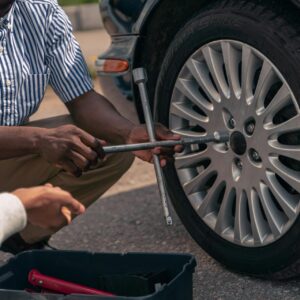Why Eco-Friendly Car Disposal Matters
Disposing of a car might seem as simple as calling the nearest wrecker, but doing it the right way can make a significant environmental impact. In New Zealand, thousands of vehicles are retired annually, and many still contain harmful fluids, recyclable metals, and reusable components. How these materials are handled matters.
Improper car disposal can lead to:
- Soil and water contamination from leaked fluids
- Unnecessary landfill waste
- Missed opportunities to recycle valuable materials
Environmental Benefits of Recycling Car Components
Eco-friendly car disposal ensures that metals like steel and aluminium are reused, reducing the demand for mining and energy-intensive manufacturing. Fluids like oil, brake fluid, and coolant are removed and safely processed. Even tyres and glass are recycled into new products.
A Role in NZ’s Circular Economy
Choosing sustainable disposal methods supports New Zealand’s growing circular economy—where resources are reused and waste is minimised. This contributes to a cleaner, greener Aotearoa.
Tip 1 – Look for Licensed & Certified Recyclers
What Certifications to Check in NZ
Make sure the disposal service you choose is licensed to handle automotive waste. Look for:
- Environmental waste processing certifications
- Authorisation from local councils
- Registration with the NZ Transport Agency (NZTA)
These approvals ensure they follow legal and environmentally sound practices.
Avoid Illegal Operators and Unregulated Yards
Unlicensed wreckers may offer fast cash but often operate without proper waste handling, risking environmental damage and legal liability. Red flags include:
- No physical address or business website
- Cash-only deals with no paperwork
- No visible certifications or affiliations
Eco compliance ensures that dismantling and waste processing are handled correctly and safely.
Tip 2 – Ask About the Dismantling Process
How Do They Handle Hazardous Waste?
An ethical disposal provider should have clear protocols for handling:
- Engine oil, brake fluid, and transmission fluid
- Car batteries and coolant
- Tyres and airbags (which require controlled disposal)
These materials can be toxic and must be managed according to environmental regulations.
Do They Resell Usable Parts?
Reputable car disposal services salvage working parts to reduce waste and support the second-hand parts market. This not only benefits the environment but can also reduce costs for others looking to repair their vehicles.
You’ll often find that an auto body parts supplier associated with the dismantler helps extend the life cycle of vehicle parts.
Tip 3 – Check If They Deal with Junk Cars Responsibly
Not every company that removes your car does so ethically.
Responsible Junk Car Disposal
Responsible services ensure that your vehicle is dismantled in an environmentally conscious way. Look for services that:
- Remove and recycle hazardous materials
- Donate or repurpose salvageable parts
- Minimise what ends up in landfill
Choosing the right junk car disposal company means you can get rid of your unwanted vehicle without contributing to environmental harm.
Tip 4 – Read Reviews and Compare Services
It’s easier than ever to check the reputation of car disposal services online. Reviews can reveal whether a company truly practices what it preaches.
What to Look for in Reviews
- Customer mentions of eco-awareness
- Transparency in pricing and process
- Fast and friendly service
Many local junk car buyers stand out because they offer free towing and pay competitive rates for vehicles while maintaining a green ethos.
Compare Offers
Always get at least two or three quotes to ensure you’re getting fair value—and be sure to ask how each provider disposes of the vehicles.
Tip 5 – Understand Their Parts Reuse and Recycling Rate
Do They Salvage Key Components?
Environmentally conscious disposal companies will salvage and resell:
- Engines and transmissions
- Doors, mirrors, and seats
- Wheels, batteries, and radiators
A high reuse rate means fewer new parts need to be manufactured—reducing emissions and conserving resources.
Reuse vs. Landfill
Avoid services that crush or landfill vehicles without salvaging usable parts. This is wasteful and harmful to the environment.
Bonus Tip – Ask About Documentation and Reporting
A professional disposal service should provide documentation that confirms legal and eco-friendly disposal.
Disposal Certification
Ask for proof that your vehicle was dismantled and disposed of through approved recycling processes.
NZTA Deregistration
They should also guide you through—or handle—the process of deregistering your vehicle with the NZTA.
This adds peace of mind and ensures that you’re not held liable for the vehicle after it’s been removed.
Final Thoughts – Choose Sustainability with Every Car Disposal
Disposing of a car doesn’t have to harm the planet. By selecting a licensed, ethical, and eco-conscious provider, you not only get rid of your old vehicle—you help contribute to a sustainable future.
- Choose a wrecker who recycles, salvages, and disposes of waste safely
- Prioritise services that support NZ’s circular economy
- Be informed and ask questions before you commit
From working with a certified dismantler to supporting your local auto body parts supplier or local junk car buyers, your choice makes a difference.
Ready to recycle your car the right way? Choose eco-friendly—and drive change.
Frequently Asked Questions (FAQs)
Q1: What makes a car disposal service eco-friendly? A service is eco-friendly if it recycles vehicle parts, safely disposes of hazardous waste, and follows NZ environmental regulations.
Q2: How do I know if a wrecker is licensed in New Zealand? Check for registration with NZTA, council certifications, or environmental waste licenses. Avoid companies that don’t provide legal paperwork.
Q3: Can I still sell my car to an eco-friendly service if it’s missing parts? Yes. Many reputable wreckers and dismantlers accept incomplete vehicles, especially if salvageable components remain.
Q4: Is it better to choose local junk car buyers for disposal? Yes. Local junk car buyers often provide faster service and help reduce transport emissions, supporting local sustainability.
Q5: What should I do before the wrecker arrives? Remove personal belongings, cancel the vehicle’s registration, take photos for records, and ensure access to ownership documents.


